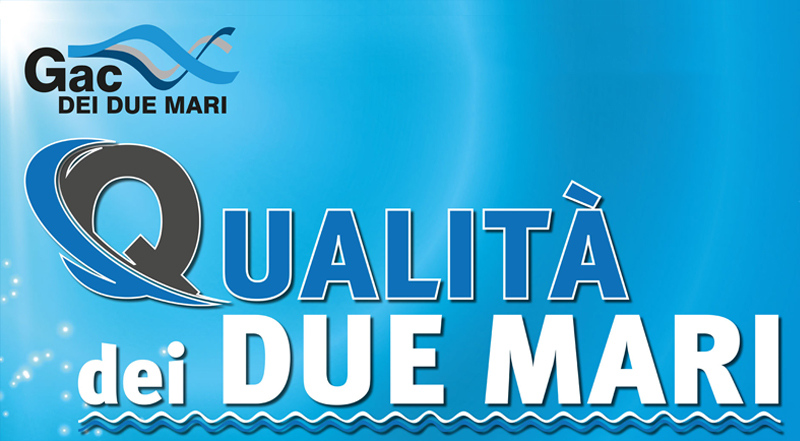Gradually reducing alcohol consumption can be achieved through a substitution taper. This can involve switching to a different alcoholic beverage or replacing alcohol with a prescription drug, but the latter should only be done under the guidance of a medical professional. Explore how to wean yourself off alcohol safely, from tapering plans to handling severe symptoms. That said, If you’ve been drinking excessively, then stopping drinking cold turkey can lead to withdrawal symptoms. Talk with a doctor to learn more about the safest ways to quit drinking alcohol. You can also learn about the options for in-patient recovery in this article.
People with alcohol use disorder can’t stop drinking even when it causes problems, like emotional distress or physical harm to themselves or others. Or maybe it’s a pregnancy that made you realize it’s time to stop drinking. Or maybe you’re just looking to improve your health, wake up hangover-free and give your liver (and your heart and brain) a break. By seeking support and professional guidance, you are taking proactive steps towards a brighter future free from the grip of alcohol. Remember, you don’t have to face this journey alone, and there are resources available to support you every step of the way. For individuals looking to make a positive change in their relationship with alcohol, the first step is acknowledging the need for change.
“If your goal from this week doesn’t work out, you can try something else next week that feels more doable. If you’re going to be spending time with family or friends you know well, you might decide to be upfront with them about what you’re doing. “We know that there are patterns of drinking that are more dangerous than others,” says Carr.
Severe withdrawal symptoms, called delirium tremens (DT) can be fatal. Jeff’s work has been used in rehabs across the country as tools to help patients achieve sobriety. Give yourself personal rewards such as taking yourself to a special, non-alcoholic meal, buying yourself a meaningful item, hosting a sober celebration, or planning a day out. Make sure to share your successes with your loved ones and especially your sober support network. You should include strategies to both reduce drinking and prevent relapse. An example of a short-term goal would be to reduce alcohol consumption by half within the next month.
Can You Stop Drinking Alcohol Cold Turkey?
Same goes for a straight-up cocktail versus a beverage like a spritz or a mixed drink, which has a lower alcohol by volume, or ABV. Remember to reach out to your friends, family, and other loved ones for support, too. They can help you create an environment that will set you up for success and remove unnecessary temptations.
Or you might just sidestep the conversation by saying that you have to get up early the next morning or want to make sure you’re good to drive later. “Having people who are going to do it with you or who are going to check in on you to see if you need https://thecinnamonhollow.com/a-guide-to-sober-house-rules-what-you-need-to-know/ support around that new choice I think is very, very critical,” says Carr. Taking a couple of shots, for example, might be the same amount of alcohol as a few beers, but because of how quickly you’re consuming it, it can do a lot more damage to your liver.
Utilizing Resources and Support
Consider talking with a therapist or counselor to help identify triggers and develop strategies for avoiding future relapses. Remember, professional guidance is crucial to ensure your safety and well-being during the tapering process. They can help you create an individualized tapering plan, monitor your progress, and make adjustments as needed. When it comes to tapering off alcohol, having a well-structured plan is essential for success.
Strategies for Safe Alcohol Reduction
However, some groups have published tapering examples to assist those trying to quit drinking. Direct tapering is not recommended for liquor drinkers as it is challenging to measure amounts and can result in binge drinking. Additionally, mixed drinks may contain sugar or other additives that could exacerbate withdrawal symptoms and should be avoided during the taper. Dealing with alcohol withdrawal is a challenging process, and it’s crucial to understand the potential severity of symptoms and the need for medical intervention. This is particularly true when the symptoms are severe and potentially life-threatening.
IOP Programs in New Hampshire for Recovery
An evidence-based rehab offering holistic and experiential therapies, tailoring treatment to each client on a comfortable campus near Austin. Recovery.com uses a standard procedure to make sure treatment provider profiles on our site are current and complete. We list any treatment center that meets our rehab criteria, giving you the best list of options possible when looking for treatment. Eating well and ensuring you are staying hydrated can stop dehydration and some of the nutrient deficiencies that come from prolonged alcohol use and withdrawal.
Understanding IOP in New Hampshire
- Nonpharmacological approaches, such as supportive counseling, education, and creating a safe environment, are suitable for individuals with mild symptoms.
- Taking care of your physical well-being is crucial during the alcohol tapering process.
- Rehabilitation facilities can help you on your path to sobriety by addressing alcohol withdrawal symptoms and becoming involved in sober living support groups, like AA.
- An alcoholic can only safely reduce their alcohol consumption under medical supervision.
- Inpatient treatment may be an expensive option in terms of time and money.
To avoid or reduce the impact of the withdrawal symptoms, people struggling with alcohol may choose to progressively taper off alcohol rather than quit abruptly. When it comes to safely weaning off alcohol, several strategies and considerations can help individuals navigate this process. Gradual reduction of alcohol intake, medical supervision, and the use of medications for withdrawal symptoms are vital aspects to ensure a safe and effective transition. Once you have a clear understanding of your current alcohol consumption, you can start setting achievable goals for reduction. Tapering off alcohol is a critical step for individuals dealing with alcohol dependence.
- By tapering off, individuals can gradually break the cycle of alcohol dependence and reduce the chances of experiencing intense cravings or relapses.
- They can provide guidance on a safe reduction strategy or recommend alcohol detox programs.
- It may even help if you spend time with other nondrinkers for a while so you can support each other.
- Regular exercise, adequate sleep, a balanced diet, and stress management techniques can support individuals in their journey to wean off alcohol 1.
- The amount of time it takes to taper off of alcohol can vary greatly from person to person.
Cutting back your drinking each day can help your body and mind adjust to a new normal. But the idea of alcohol tapering, the gradual reduction of alcohol, might seem counterintuitive. However, using this method can help you avoid severe alcohol withdrawal symptoms and decrease A Guide To Sober House Rules: What You Need To Know the risk of a relapse. Gradually reducing alcohol consumption is a common approach for individuals looking to wean themselves off alcohol safely. This method involves gradually decreasing the amount and frequency of alcohol consumption over a set period of time. The gradual reduction approach allows the body to adjust to lower alcohol levels, minimizing the risk of severe withdrawal symptoms.
With the right strategies and professional guidance, it is possible to wean oneself off alcohol safely and successfully. In addition to these strategies, it’s important to build a support system and consider seeking professional guidance to increase your chances of successfully tapering off alcohol. With the right strategies and support in place, you can take control of your relationship with alcohol and pave the way for a brighter, alcohol-free future. With these things in mind, it’s important to weigh the pros and cons of tapering your alcohol use to make a fully informed decision.
Prompt treatment, even for mild symptoms, can help prevent the development of more severe withdrawal symptoms in subsequent episodes 6. Alcohol withdrawal is a clinical syndrome that occurs when individuals accustomed to regular alcohol intake either decrease their consumption or stop drinking completely. The manifestations of alcohol withdrawal can range from mild to severe and can have significant effects on an individual’s well-being. Understanding the symptoms, clinical manifestations, and the central nervous system (CNS) adaptations can help in assessing severity and determining appropriate treatment options. Severe alcohol withdrawal symptoms can manifest as delirium tremens (DT), a potentially dangerous condition that requires immediate medical attention. Delirium tremens is characterized by symptoms such as rapid heartbeat, high blood pressure, fever, and confusion.




